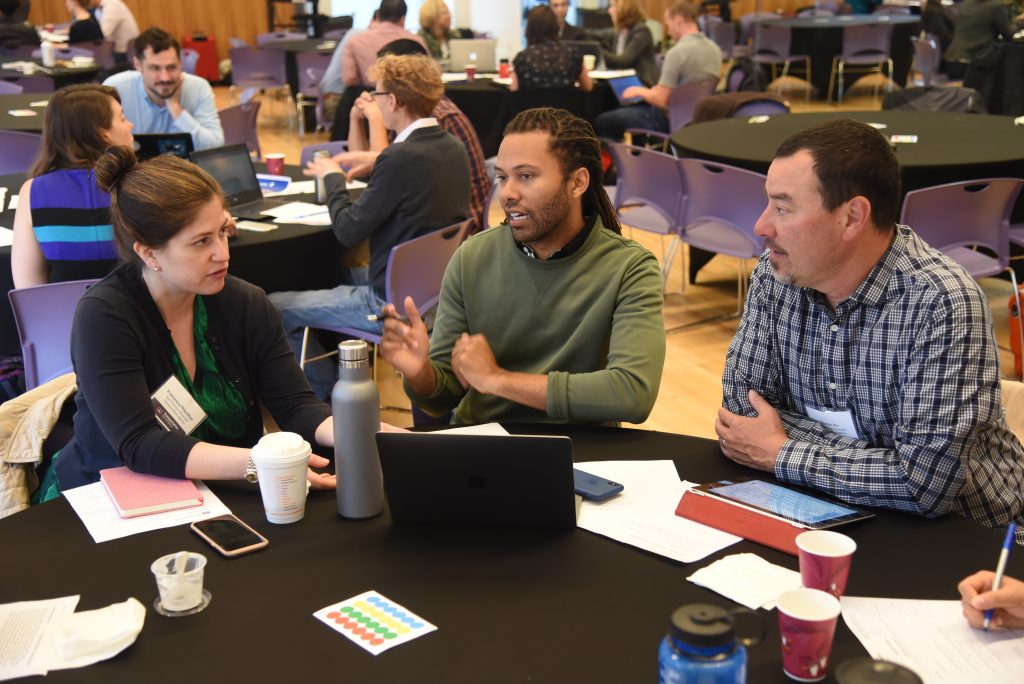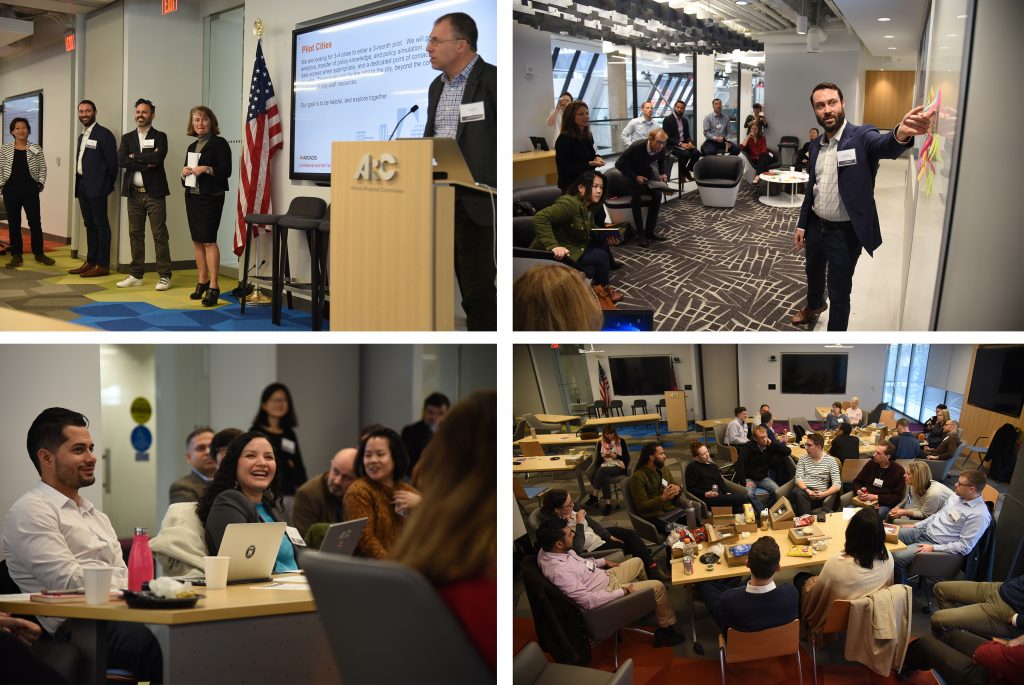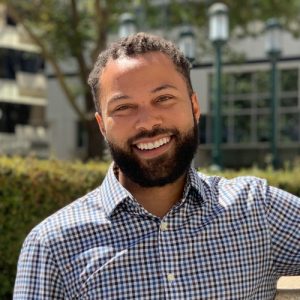The best thing about the Smart Cities Collaborative is the peer-learning, says Oakland’s Warren Logan
Next January marks the third cohort for T4America’s Smart Cities Collaborative. This time around, a steering committee of former Collaborative members is helping us shape the program. Warren Logan, the Policy Director of Mobility and Interagency Relations at Oakland Mayor’s Office, talked with us about what makes the Smart Cities Collaborative so valuable to city officials.
Transportation for America: What’s the hardest part about working on new mobility at the city level?
Warren Logan: *Laughs* There are two major challenges. One is that city government isn’t equipped to manage innovation. We’re good at working slowly to maintain safety, order and equitable access. New mobility companies challenge the city, and sometimes actively try to avoid regulation.
Secondly, the people who work in government are not the target audience for these kind of mobility services. This is a huge cultural challenge. If you look at the demographics of people who use scooters, bikeshare, or any kind of mobility through their smartphones, it’s people between the ages of 21 and 35. These people are more affluent, more flexible, and they live downtown—they’re the new urban class that we’re seeing shift into cities in the greater part of America.
The people who you might assume work in high levels of government are older, more conservative, and more averse to risk. I saw this frequently in San Francisco, where I used to work: people who have never ridden a scooter but want to regulate them a particular way. This fundamentally underscores the challenge. If you haven’t used it, you should try it out first before regulating. In Oakland, where I now work, our scooter permitting policy requires that city staff test them out. We need to understand scooter users.
T4America: What part of the Smart Cities Collaborative did you find most valuable?
WL: The Collaborative is one part therapy, one part workshop. It’s really helpful to be in a room full of people facing the same challenges and working towards the same goal.
 Warren Logan talking with former colleagues and staff from the Bay Area during the 2018 Smart Cities Collaborative.
Warren Logan talking with former colleagues and staff from the Bay Area during the 2018 Smart Cities Collaborative.
One thing that’s really challenging about new mobility is that each city has three full-time staff—at best—working on this subject. It’s challenging for the one mobility person embedded in parking management to know what the right, innovative answer is when they’re surrounded by people focused on only parking.
That’s what makes the Collaborative so valuable: The diversity of cities—blue, red, big, small, coastal, southern, Midwestern—results in a wealth of information and an incredible alumni network. It’s amazing to be able to call up someone from another city, talk about the problem you’re experiencing for 30 minutes, and then solve it, right there.
T4America: How did you bring what you learned at the Collaborative to San Francisco? And now to Oakland?
WL: San Francisco is on the cutting edge of a lot of new mobility issues, so there’s this understandable mentality that we have to be the first ones to solve a problem. But what’s interesting is that since shared mobility launchd in a lot of places really quickly, we’re not the biggest fish in the pond.
More importantly, as I participated in the Collaborative for a while, we found that this model—this permitting structure that we all backed into as the way to manage shared mobility—might not be perfect. Maybe we would have been better off if we chose a public-private partnership or a franchise model. What I brought back to San Francisco, and now to Oakland, is a way to explore questions that I never thought of before, and the very rich contacts from all these cities to explore these solutions.
Interesting in sponsoring the Smart Cities Collaborative? Learn more here.

Some scenes from the final meeting of the 2018 Smart Cities Collaborative




















